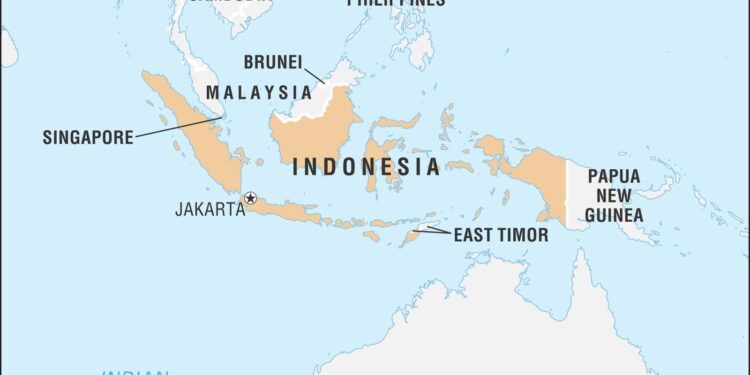Indonesia’s KAAN Fighter Jet Deal: Negotiations Continue Amid Uncertainty
Indonesia has recently clarified that it has yet to finalize any agreement concerning the acquisition of 48 Turkish-made KAAN fighter jets. This update arrives amid ongoing discussions between Indonesian defense officials and representatives from Turkey’s aerospace industry, underscoring the intricate nature of international military procurement processes. As Jakarta evaluates its strategic priorities for modernizing its air force, the outcome of these talks remains unresolved.
Current Status of Indonesia-Turkey Fighter Jet Negotiations
The Indonesian government confirmed that no binding contract has been signed regarding the purchase of KAAN jets, despite earlier reports suggesting progress. The negotiations with Turkish Aerospace Industries (TAI) are still active, focusing on several critical aspects such as pricing models, delivery schedules aligned with Indonesia’s defense roadmap, and potential technology transfer agreements.
The Indonesian Air Force views this acquisition as a key step toward upgrading an aging fleet and enhancing aerial combat capabilities. However, both parties are carefully navigating complex issues including cost-effectiveness and long-term maintenance support before committing to a final deal.
- Cost Negotiations: Striving for a price point that balances quality with budget constraints.
- Delivery Timelines: Aligning jet deliveries with Indonesia’s phased modernization plans through the late 2020s.
- Technology Sharing: Exploring joint development opportunities to boost local aerospace expertise.
The Broader Impact on Indonesia’s Defense Modernization Strategy
This delay in formalizing the KAAN jet deal highlights broader challenges within Indonesia’s military procurement framework. The country is actively pursuing diversification in its defense suppliers while simultaneously emphasizing indigenous production capabilities—a strategy aimed at reducing reliance on foreign arms imports over time.
This approach reflects Jakarta’s ambition not only to upgrade operational readiness but also to foster domestic aerospace industries through technology partnerships and knowledge exchange programs. Analysts note that balancing relationships between Western allies and emerging defense partners like Turkey will be crucial in shaping regional security dynamics moving forward.
- Diversified Alliances: Balancing ties between NATO countries and non-Western manufacturers for strategic autonomy.
- Aging Fleet Replacement: Addressing urgent needs while managing fiscal limitations amid global economic uncertainties.
- Sovereign Capability Development: Leveraging tech transfers to build local manufacturing capacity over time.
| Main Focus Areas | Status Update |
|---|---|
| Kaan Jet Acquisition Contract | No finalized agreement yet |
| Pursuit of Domestic Aerospace Growth | An ongoing priority within national policy frameworks |
| Regional Security Considerations | Cautiously monitored by neighboring states and analysts alike |
Tactical Recommendations for Enhancing Defense Collaborations in Aerospace Technology
If Indonesia aims to solidify its position as a rising player in global aerospace defense markets—especially given current talks around acquiring advanced fighter jets—it must adopt a comprehensive strategy focused on strengthening international partnerships alongside domestic innovation efforts. Collaborative research initiatives can accelerate technological advancements while nurturing skilled labor forces within Indonesia’s growing aviation sector.
Bilateral engagements should prioritize interoperability through joint military exercises, ensuring seamless coordination during combined operations or crisis responses. Furthermore, securing favorable terms for technology transfer will empower local firms by granting access to cutting-edge manufacturing techniques essential for future self-reliance goals.
- Joint Military Drills: Regularly scheduled training sessions with allied nations enhance tactical proficiency across diverse scenarios.
- Technology Transfer Deals: Negotiating agreements enabling access to proprietary systems fosters industrial growth domestically.
- Strategic Industry Partnerships: Collaborating with established aerospace companies accelerates co-development projects spanning both military hardware and civilian aircraft sectors.
Potential Partners Areas For Cooperation < td >Turkey < td >KAAN fighter jet systems integration & pilot training programs < td >United States < td >Advanced ISR (Intelligence Surveillance Reconnaissance) platforms & avionics upgrades < td >European Union Countries < td>Civil aviation technologies emphasizing sustainability & emissions reduction standards A Glimpse Ahead: What Lies Beyond Current Talks?
The trajectory of negotiations surrounding Indonesia’s potential purchase of Turkish KAAN fighters remains fluid as both governments stress meticulous deliberation prior to contract finalization. While this prospective partnership signals deepening bilateral ties in defense cooperation between Jakarta and Ankara, no definitive commitments have been made so far—reflecting prudent caution amidst evolving geopolitical landscapes across Southeast Asia-Pacific regions where air superiority plays an increasingly pivotal role amid rising tensions over territorial disputes such as those involving the South China Sea claims by multiple nations including China itself alongside ASEAN members like Vietnam and Malaysia.
The outcome will likely influence not only how swiftly Indonesia can rejuvenate its aerial combat fleet but also how effectively it can leverage foreign collaborations without compromising sovereignty ambitions or upsetting regional power balances. Observers worldwide remain attentive since these developments could set precedents affecting future arms deals involving emerging middle powers seeking advanced yet affordable solutions outside traditional Western suppliers’ domains—mirroring trends seen recently where countries like Brazil opted for diversified sources including Russian Su-35 fighters or India expanding indigenous Tejas program investments alongside imports from France’s Dassault Rafale jets portfolio totaling over $10 billion USD worth contracts signed since early last decade reflecting shifting paradigms towards multipolarity in global arms trade markets today (Stockholm International Peace Research Institute – SIPRI data).
Conclusion: Navigating Complexities Toward Strategic Autonomy and Regional Stability in Aerospace Defense Procurement in Southeast Asia-Pacific Region
The ongoing dialogue about procuring Turkish-made KAAN fighter aircraft illustrates how emerging economies like Indonesia are carefully balancing modernization imperatives against geopolitical realities—and financial prudence—in their quest toward greater self-reliable defense postures.
As negotiations proceed cautiously without rushing into premature commitments amidst shifting regional security concerns—including maritime disputes near vital shipping lanes—the eventual resolution may well serve as a blueprint demonstrating how mid-tier powers can strategically engage diverse partners beyond traditional Western suppliers.
Ultimately, success hinges upon transparent dialogue fostering mutual benefits encompassing technology sharing along with sustainable industrial growth domestically—all contributing toward enhanced national security resilience while maintaining peaceful coexistence within Southeast Asia-Pacific geopolitics.
